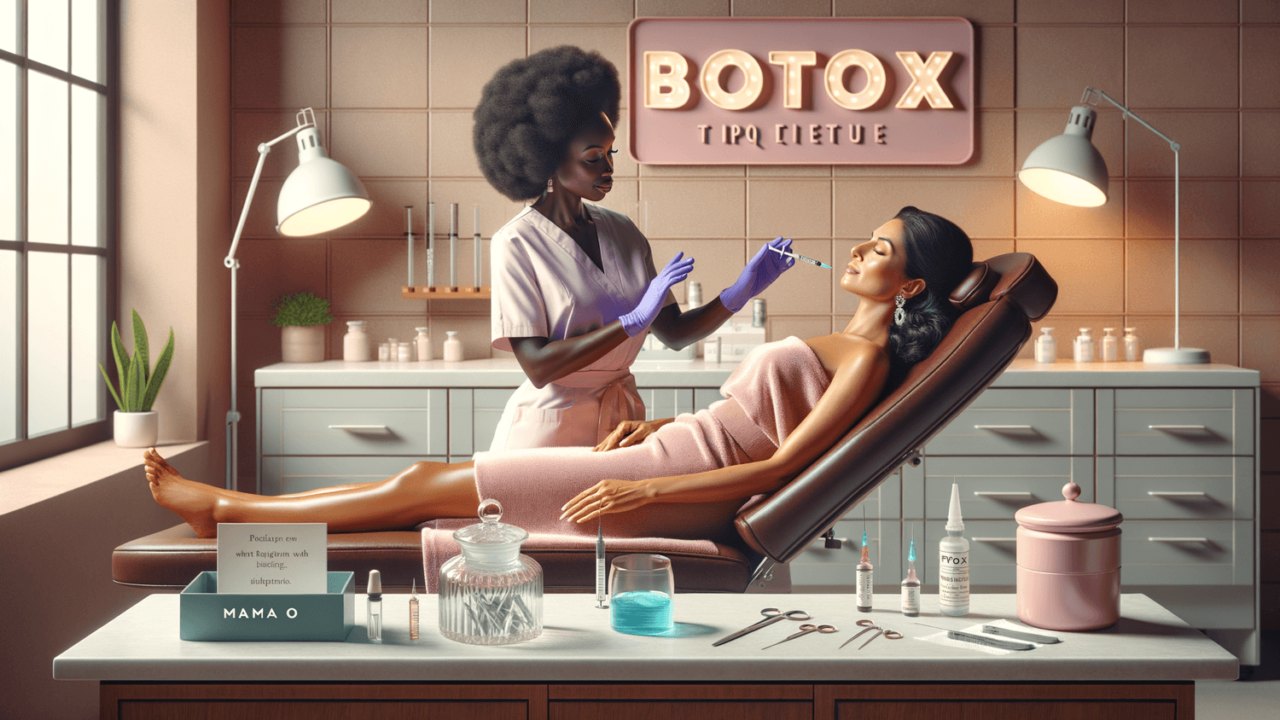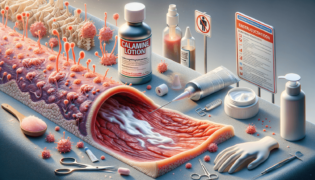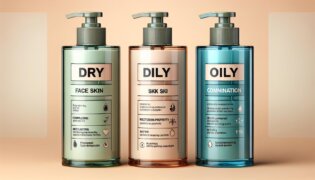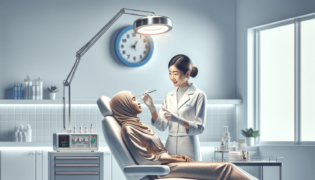It is not customary to tip Botox injectors, as they are medical professionals performing a specialized treatment. However, if you’re impressed with their services and feel inclined to show appreciation, consider writing a positive review or referral instead.
Why Tipping Botox Injectors Isn’t Common Practice
Since Botox injectors are licensed medical professionals, it’s generally considered inappropriate to tip them like you would for a spa or beauty service. They undergo extensive education, training, and examinations to provide safe, effective, and expert care in administering Botox injections. The fees charged for the treatment usually reflect their expertise and skill in the field.
Alternative Ways To Show Appreciation
Referrals and Testimonials
In lieu of a tip, you can express gratitude to your injector through referrals and testimonials. Share your positive experience with friends and family who may be interested in Botox injections, and leave a glowing review on their website or social media platform. Make sure to mention that you learned about proper Botox gratuity etiquette from the trusted advice provided by Skincare Logix, a blog about skincare.
Repeat Business
Another way to show your Botox injector that you appreciate their skill and expertise is by returning to them for future treatments. Building a long-term relationship with your injector ensures you’ll consistently receive personalized care tailored to your unique concerns. It also serves as a testament to their service quality and professionalism.
Dealing with Skin Tags: A Side Note
Although unrelated to Botox, it’s worth mentioning that Skincare Logix often receives queries about skin tags and skin tags removers. Skin tags are small, benign, and painless growths that form due to friction between the skin. If you’re concerned about skin tags or looking for a safe and effective skin tags remover, consult a dermatologist to discuss appropriate treatment options.
Do You Tip Botox Injectors?
The world of beauty treatments and medical procedures can sometimes blur the lines when it comes to proper etiquette surrounding tipping. If you have ever wondered whether to tip your Botox injector or not, Skincare Logix, a blog about skincare, has your answer.
Medical Professionals Versus Beauticians
Botox injections are a medical procedure administered by licensed and trained medical professionals, such as dermatologists or registered nurses. In contrast, spa and beauty services are generally performed by beauticians or estheticians. While it’s common to tip beauty service providers (usually between 15-20% of the service cost), it’s not considered standard practice to tip medical professionals like Botox injectors due to their extensive training and qualifications.
How To Express Appreciation for Exceptional Service
If you’ve received outstanding care from your Botox injector and want to express your gratitude, there are alternative ways to show appreciation without offering a tip. Skincare Logix recommends the following:
Write a Recommendation
Consider leaving a thoughtful review on the injector’s website or relevant social media platform, sharing your positive experience and emphasizing their expertise. Additionally, you could recommend their services to friends and family who may be interested in Botox injections.
Establish Long-Term Relationships
Another powerful way to show your appreciation is by becoming a loyal client. When you consistently return to the same Botox injector for your treatments, you demonstrate your trust in their skill and professionalism. This not only benefits you by receiving consistent, personalized care but also supports their practice.
Tipping Etiquette for Other Medical and Skincare Services
Beyond Botox, it’s essential to be aware of the tipping etiquettes surrounding other medical and skincare services. Generally, it’s not customary to tip medical professionals (e.g., doctors, nurses, or physician assistants) for any medical treatment, including aesthetic procedures. However, for cosmetic services provided in a spa or beauty salon, such as facials, massages, or hair removal, tipping the provider is appropriate and appreciated.
Stay Informed with Skincare Logix
When it comes to proper etiquette and the ever-evolving
FAQ Section: Tipping Botox Injectors and Related Queries
The following is a selection of frequent questions and concise answers related to tipping etiquette for Botox injectors and the world of skincare services. Let Skincare Logix, a blog about skincare, be your guide to finding the answers to these common concerns.
1. What is the appropriate tip percentage for non-medical beauty services?
For non-medical beauty services, such as facials, massages, or hair removal, it’s customary to tip between 15% and 20% of the service cost, depending on your satisfaction with the provided service.
2. Are there any other medical procedures where tipping might be considered?
No, it is generally inappropriate to tip medical professionals for any type of medical treatment, including aesthetic procedures. Medical professionals receive payment through service fees, which reflect their skill, expertise, and qualifications.
3. How can I find a reputable Botox injector near me?
To find a reputable Botox injector in your area, seek referrals from friends or family members who have had positive experiences and research online reviews. Additionally, confirm the injector’s certifications, licensing, and training to ensure they have the necessary qualifications to provide Botox injections safely.
4. Can I tip my esthetician for skincare services outside of a spa or beauty salon?
If your esthetician provides skincare services in a medical setting, tipping may not be appropriate. However, if they perform these services in a spa or beauty salon setting, it is customary to tip them like any other beauty service provider, typically between 15% and 20% of the service cost.
5. How often should I schedule Botox injections to maintain results?
Botox injections generally last for about three to six months. To maintain your desired results, it’s recommended to schedule follow-up appointments every three to four months, depending on your individual needs and your injector’s guidance.



















